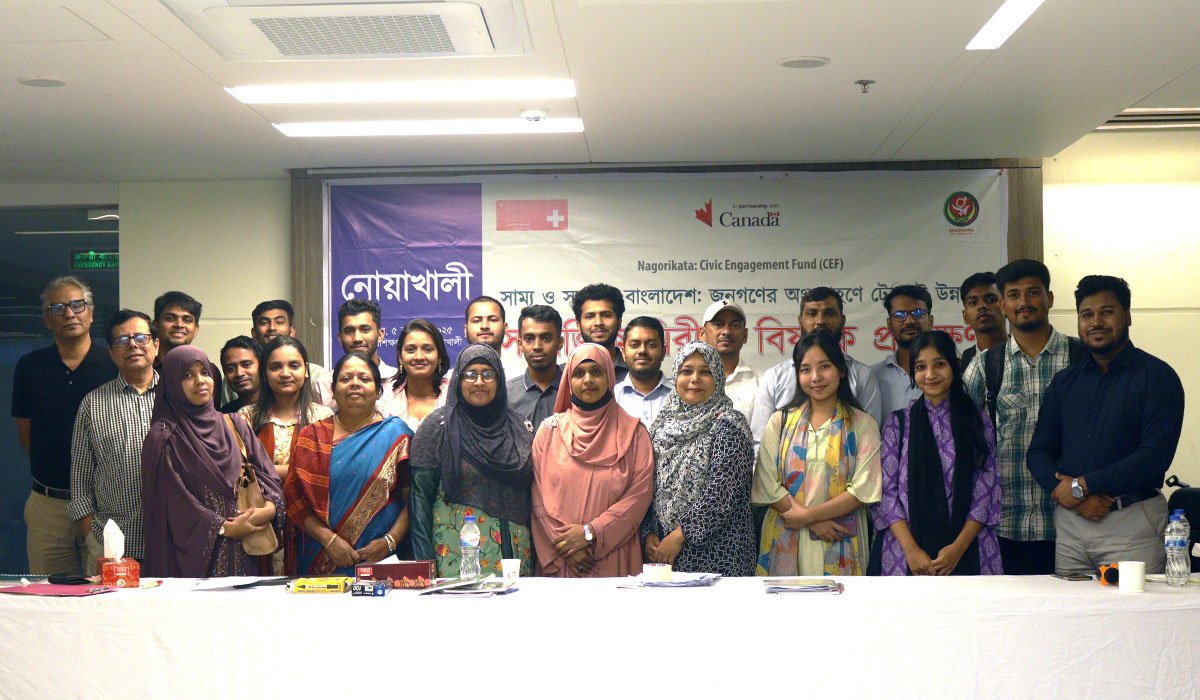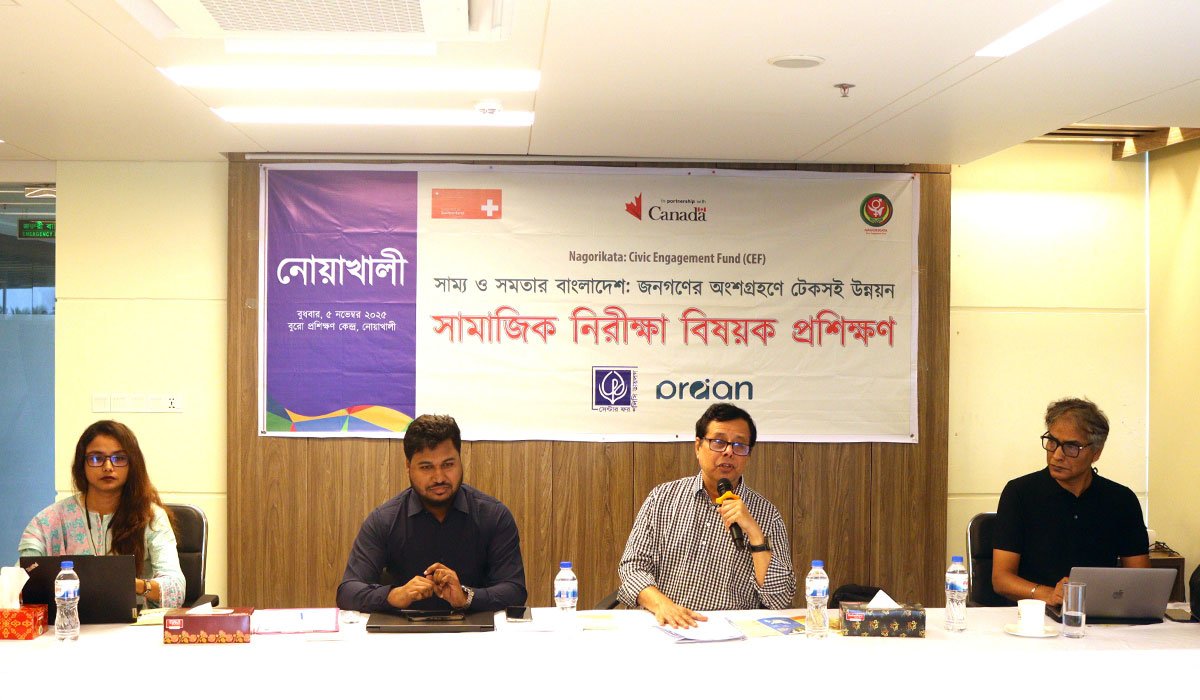
A day-long training on ‘Social Audit’ for citizen group members was held in Noakhali on Wednesday, 5 November 2025, aiming to strengthen local-level participation, transparency, and accountability in public service delivery.
Organised under the NAGORIKATA–CEF Project titled “Achieving a Peaceful, Just and Inclusive Society through Enhanced Engagement of Civil Society and Citizens in Bangladesh,” the training was facilitated by the Participatory Research and Action Network (PRAAN) in collaboration with the Centre for Policy Dialogue (CPD). The event was supported by the Embassy of Switzerland in Bangladesh and the High Commission of Canada to Bangladesh, and facillitated by GFA Consulting Group GmbH.
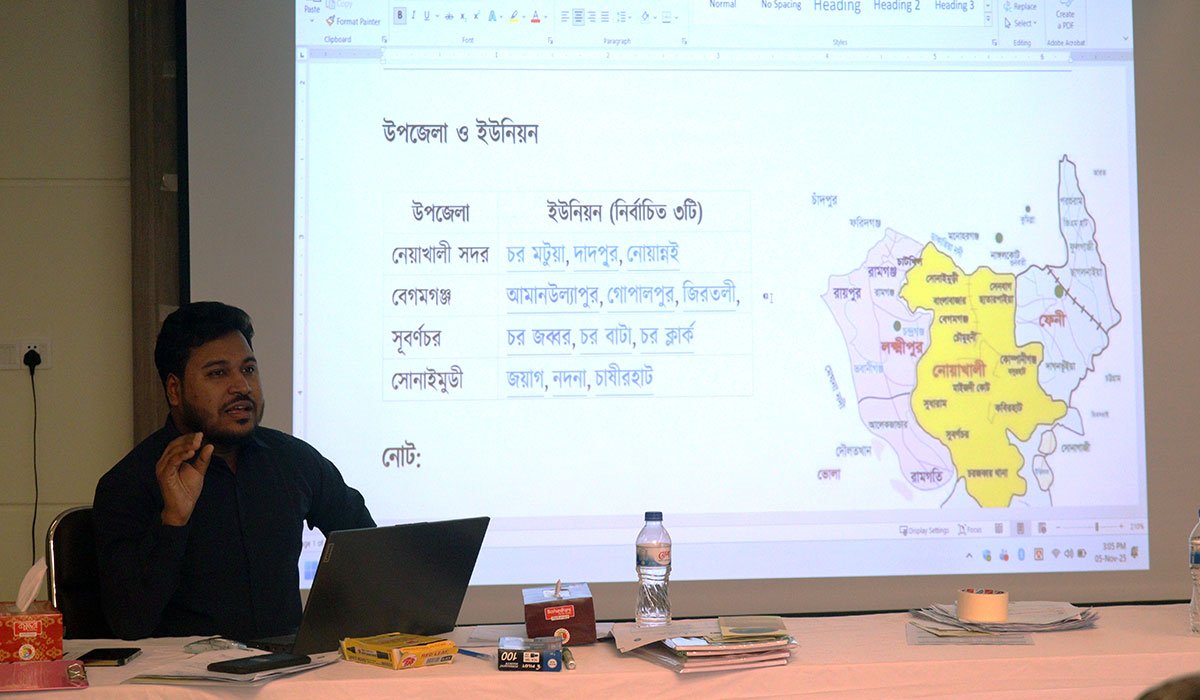
Despite heavy morning rainfall, more than 80 members of citizen groups, along with four community volunteers and field coordinators from Noakhali Sadar, Begumganj, Sonaimuri, and Subarnachar upazilas, took part in the session.
The opening ceremony featured remarks from Dr Dwijen Mallick, Project Coordinator of Nagorikata at CPD, and Ms Umme Salma, Programme Coordinator of PRAAN. Both speakers highlighted the importance of social audits in promoting good governance and accountability at the grassroots level. They stressed that empowering citizens to monitor development activities strengthens trust between communities and institutions, while reinforcing democratic participation.
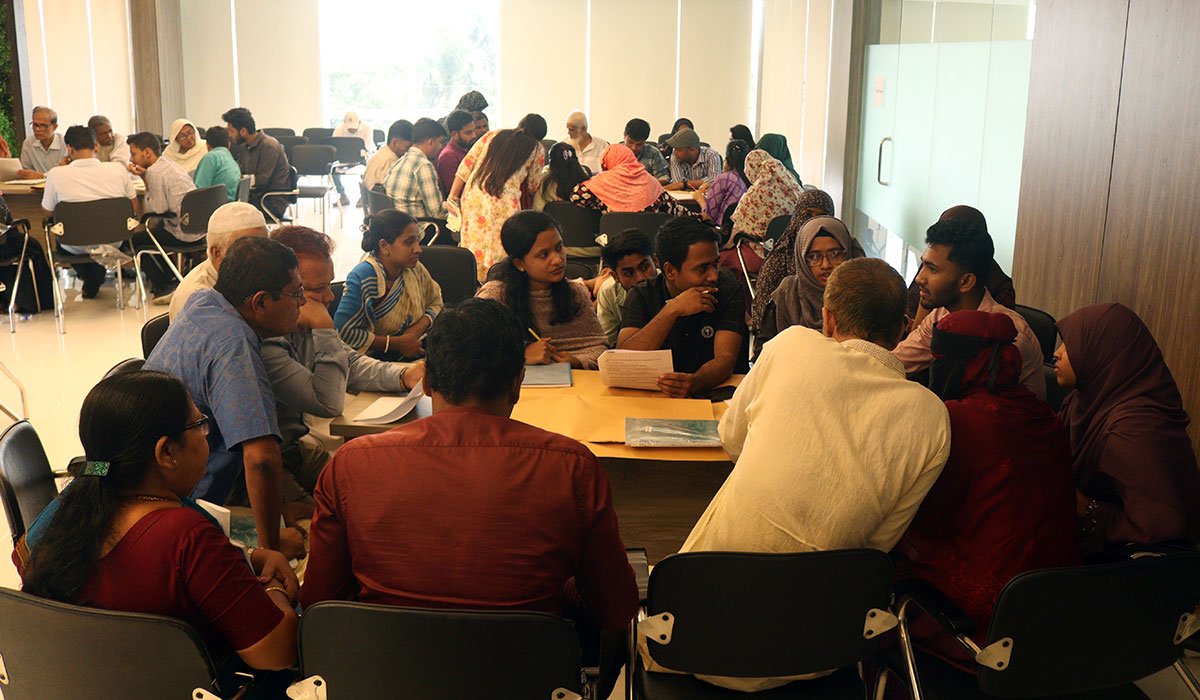
Technical sessions were conducted by Mr Md Mozahidul Islam, Project Consultant at CPD; Mr Md Jaouadul Karim, Monitoring and Evaluation Associate at CPD; and PRAAN field coordinators Mr Md Mahmudul Hasan, Mr Md Nazrul Islam, Mr Md Maruf Billah, Ms Naima Jahan Haque Tasin, and Mr Mohammad Abdul Bari.
Participants received practical training in survey techniques, Focus Group Discussions (FGDs), and Key Informant Interviews (KIIs) — essential tools for conducting community-based social audits. The sessions also emphasised integrating the principles of the Human Rights-Based Approach (HRBA), Leave No One Behind (LNOB), and Gender Equality and Social Inclusion (GESI) into the audit process.
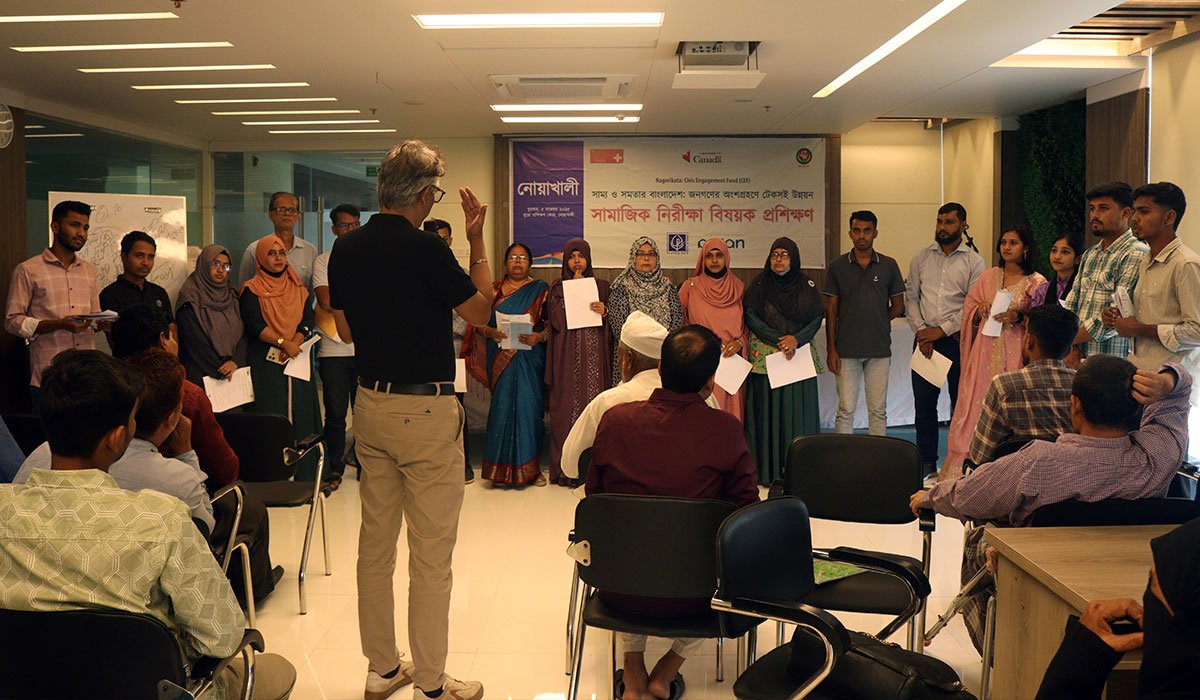
Through group exercises, mock trials, and field planning activities, participants developed skills in data collection and analysis while learning to ensure inclusivity and uphold ethical standards. The training concluded with reflections on key lessons and a shared commitment to applying these skills in forthcoming social audit exercises across Noakhali.
This initiative aims to equip citizen group members to monitor progress on SDG 5 (Gender Equality) and SDG 16 (Peace, Justice, and Strong Institutions). By enabling ordinary citizens to assess service delivery and report irregularities, the programme seeks to make local governance in Bangladesh more transparent, equitable, and people-centred.
